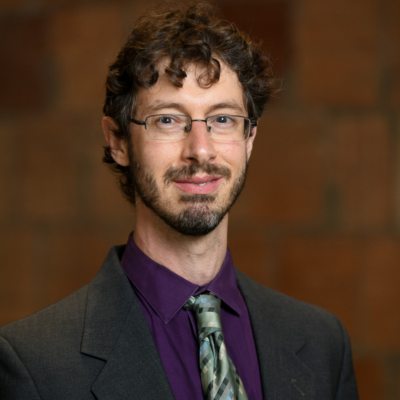Sometimes who we are affects what we can see.
In this week’s parshah, we meet Zelophechad’s five daughters for the second time. Last week, in Parshat Pinchas, they appealed to Moses for a change in the inheritance laws. Their father died leaving no son, and they wanted to inherit his portion of the land so their family’s name would not be obliterated. God agreed.
This week, they are back in court, so to speak, not as plaintiffs but as defendants. Their tribe, Menashe, is concerned about what would happen to their land-holding if the daughters marry outside the tribe; it could be lost to Menashe forever. God is sympathetic to the tribe of Menashe’s argument in Numbers 36:5. But in the next verse, God seems to give conflicting instructions: They should marry within their tribe, and,
.לַטּ֥וֹב בְּעֵינֵיהֶ֖ם תִּהְיֶ֣ינָה לְנָשִׁ֑ים
La-tov b’eineihem tihiyena le-nashim.
Translating hyper-literally, which will become significant in a moment, God says, “To the good in their eyes they shall be women.” In context, this means they can marry whomever they want, and the classical commentators spill their ink resolving the apparent contradiction between the two halves of this verse.
Find more commentaries on Parshat Matot-Masei.
Of the nine classical commentators appearing on Sefaria who write in Hebrew and comment on this verse, not one of them picks up on a small grammatical detail identified by Hila Unna, a contemporary Israeli woman from a famous family of the religious kibbutz movement. Writing in Dirshuni: Israeli Women Writing Midrash, Volume II, Unna notices the grammatical gender of the second word quoted above. “Eineihem” is masculine; the feminine plural form, which the verse should have used regarding the daughters, is eineihen.
Almost certainly, this is a scribal error and an easy one to make at that. But that’s not how we read Torah; we believe that every word, every letter, has meaning. Based on the grammar on the page, and reaching for the most obvious plural masculine noun present, Unna re-reads the sentence literally, in midrashic style:
To the good in the eyes [of the people] will be these women, for generations.
Or, switching around word order to be more in line with English syntax, “These women will be good in their [the people’s] eyes.” She shifts “to the good” from being an indirect object, modifying the implied noun “husbands,” to become a direct object, and she interprets nashim not as wives but simply as women. In other words, God is saying that these women should be remembered as good. In a single neat line, Unna clears up the confusion about God’s instructions and grants the daughters a new, formal status in the public eye as “pursuers of good.”
Reading this midrash, I was reminded of a teaching I learned from Dr. Avivah Zornberg about Moses, when I had the honor of studying with her in Jerusalem. She says that Moses’ whole life is framed by the idea of “good,” beginning with his birth, when the very first thing we learn about him — after his sex — is that his mother saw that he was good. (Exodus 2:2) Commenting on several episodes in the book of Numbers, including Numbers 10:29-32, Zornberg points out how often Moses uses the word “tov/good.” In her interpretation, this indicates a fundamental orientation in Moses: He is so focused on things that are good that he has trouble seeing anything as bad or understanding when others see things that way.
I would like to suggest that this trait cuts both ways. Yes, it prevents Moses from understanding certain things, but it also attunes him to seeing goodness even when it might not be obvious — a trait that for sure saves the Israelites multiple times in the desert when God is fed up and wants to blot them out.
Sign up to receive (M)oral Torah in your inbox each week.
Now we are at the end of the desert wandering. Moses’ death has been ordained. Joshua has been anointed his successor. (Numbers 27:12-23) Joshua is a worthy leader, but the same air of “tov” does not surround him. Who, then, carries forward this special legacy of Moses? I believe Hila Unna is saying that Zelophechad’s daughters do.
In the New York Times on July 2, historian Jill Lepore wrote about the harm we suffer as a country because we have lost the habit of amending our Constitution. She writes:
Originalists, who now dominate the Supreme Court, insist that rights and other ideas not discoverable in the debates over the Constitution at its framing do not exist. Perversely, they rely on a wildly impoverished historical record, one that fails even to comprehend the nature of amendment.
She goes on to write about how the Amendments Project, which she leads, has just released a public archive of more than 20,000 historical proposals to amend the Constitution, made by people of all genders, races, and statuses over the years — not just the wealthy, white, Christian men who were present at the Constitutional Convention.
As we grapple with the most recent spate of Supreme Court rulings that undermine human rights — on affirmative action, on LGBTQ rights, on student loan debt forgiveness, and more — let us remember how Hila Unna, a woman with no advanced degree, noticed one letter’s change that opened a new world of meaning to her. And let us strive to learn from Zelophechad’s daughters, seeking good wherever we can find it.
Rabbi Lev Meirowitz Nelson edits (M)oral Torah and enjoys the opportunity to contribute a piece from time to time. He is the Director of Emor, The Institute for Bold Jewish Thought, and the Director of Leadership & Learning at T’ruah.

